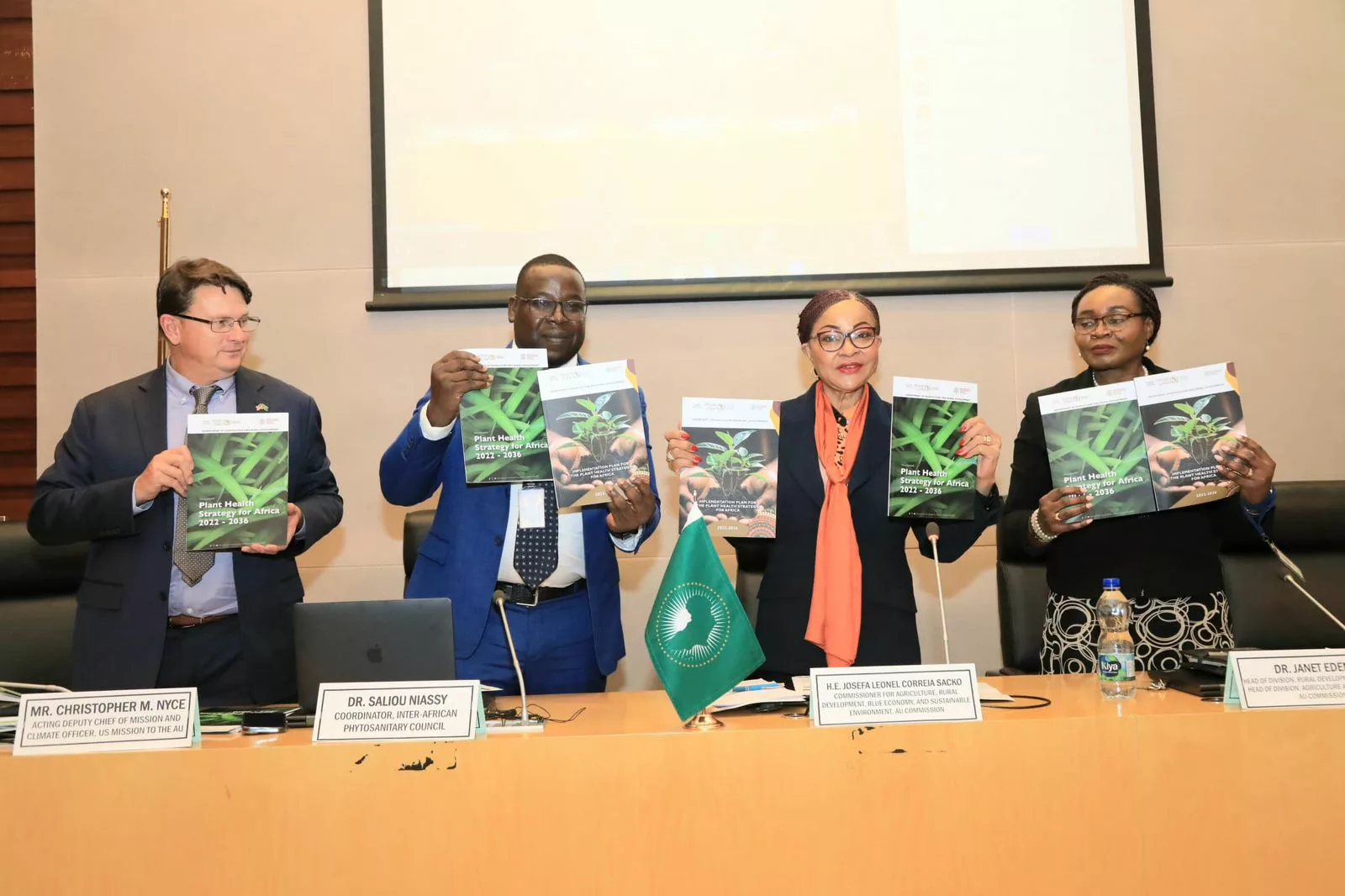|
Getting your Trinity Audio player ready...
|
The management of risks related to plant health is crucial for Africa’s economy and remains a pressing and urgent challenge, AU Commissioner Josefa Correia Sacko said today in Addis Ababa.
The diplomat made these remarks while speaking at the launch of the phytosanitary strategy for Africa (2022-2036), which addresses the adoption and promotion of effective measures aimed at complying with the international standards established by the International Plant Protection Convention (IPPC) and Codex to reduce/control the adverse effects of pandemic and exotic species of invasive plant pests on livelihoods and biodiversity.
In their view, plant pests and diseases not only jeopardise the quality and quantity of agricultural products but also have far-reaching negative impacts on food security, the environment, biodiversity, trade in agricultural products, income generation, and the health of the African population.
“The ever-increasing demand for food to feed a growing human population requires immediate and targeted efforts to strengthen national, regional, and continental phytosanitary systems in order to ensure the quality of food products,” she emphasised.
Josefa Sacko said that the continued occurrence of plant pests and diseases, exacerbated by climate change, has resulted in high rates of loss of plant species and biodiversity, as well as reduced crop productivity, and has put thousands of African plant species at risk.
According to her, this growing trend must be reversed, given the centrality of agriculture in Africa’s economy, where on average it accounts for 40 percent of Gross Domestic Product (GDP), 15 percent of exports, 60 to 80 percent of employment, and 75 percent of intra-African trade.
“If this negative trend is not reversed, Africa’s economic gains and aspirations through various development initiatives and strategies (such as Agenda 2063 and the African Continental Free Trade Area (AfCFTA) agreement aimed at increasing intra-African trade) will be jeopardised, “ the AU Commissioner stressed.
In this regard, she acknowledged that the Phytosanitary Strategy for Africa (PHSA) provides a clear roadmap for managing potential phytosanitary threats that hinder the operationalisation of the continent’s agricultural development strategies and initiatives.
On the other hand, it ensures that the implementation of the phytosanitary strategy will reduce duplication of effort, thus facilitating synergy to leverage existing resources and capacities, thereby increasing lesson learning and best practices.
This strategy was developed as a tool to implement the continental framework of the sanitary and phytosanitary programme for Africa, which was approved by the AU’s political bodies in 2020.






